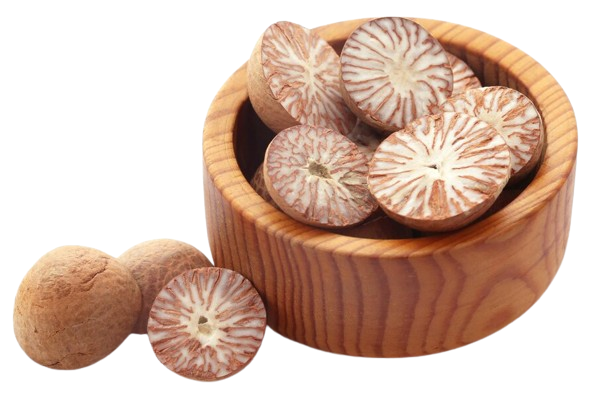Picture this: a vibrant Indian wedding, where the air is thick with the scent of marigolds and the sound of laughter. As guests arrive, they’re greeted with a silver tray holding tiny, fragrant parcels—a betel leaf folded around supari (areca nut), cardamom, and clove. This humble offering isn’t just a snack; it’s a sacred gesture of welcome, a thread connecting generations. For centuries, supari has been more than a nut—it’s a cultural emblem, a storyteller of traditions, and a bridge between the old and new.
The Ancient Roots of Supari
The betel nut’s journey in India dates back over 2,000 years. Ancient texts like the Charaka Samhita mention its use in Ayurveda for digestion and vitality. But supari’s role transcended medicine. It became a symbol of prosperity, used in rituals to invoke blessings. In Hindu ceremonies, no puja is complete without the panchakarya—five sacred offerings, including supari, representing the five elements. Its presence in temples, weddings, and festivals underscores its spiritual weight.
Supari in Celebrations: More Than a Ritual
In Indian culture, celebrations are incomplete without supari. At weddings, it’s part of the var mala exchange, symbolizing the couple’s union. During Diwali, families share supari-laden mukhwas after feasts, signifying sweetness and freshness. Even in everyday life, offering supari to guests is a gesture of respect—a tradition echoing the Sanskrit saying, “Atithi Devo Bhava” (The guest is God).
But supari isn’t just about rituals. It’s a social glue. Elders reminisce about chewing paan (betel leaf) after meals, while kids sneak handfuls of sweetened supari from kitchen jars. Its slightly bitter, earthy taste is an acquired nostalgia, evoking memories of grandmothers’ stories and festive chaos.
The Modern Twist: Tradition Meets Convenience
Today’s fast-paced life leaves little time for rolling paan or preparing homemade mukhwas. Enter products like Rasily Sweet Soft Supari Mouth Freshener—a modern homage to tradition. Since 1973, Rasily has perfected the art of blending 100% pure supari with sugar, menthol, and a dash of innovation. Their hygienically packed mukhwas offer the same cultural punch but fit seamlessly into busy lives.
What makes this supari stand out? Imagine cracking open a pack to release a burst of cool menthol, followed by the nutty warmth of betel nut softened by sweetness. It’s a sensory journey—a nod to the past with a wink to the present. Perfect for post-meal freshness or gifting during festivals, Rasily’s supari bridges generations. Grandparents approve of its authenticity, while millennials love the grab-and-go convenience.
Why Rasily’s Supari Resonates
In a world of fleeting trends, Rasily’s 50-year legacy speaks volumes. Their recipe isn’t just about taste; it’s about preserving heritage. Each ingredient is chosen mindfully—betel nut for tradition, menthol for freshness, and a touch of sweetness to delight modern palates. The resealable pack ensures every bite stays crisp, whether you’re hosting a party or navigating rush hour traffic.
A Flavorful Invitation
Supari’s story is one of resilience. From ancient rituals to Instagram-worthy Diwali trays, it adapts without losing its soul. Products like Rasily’s Sweet Soft Supari aren’t just snacks; they’re keepers of culture. They remind us that tradition isn’t about clinging to the past—it’s about carrying it forward with joy.
So, the next time you reach for a mouth freshener, why not choose one steeped in legacy? Try Rasily’s Sweet Soft Supari—where every bite is a celebration of India’s rich tapestry, packed with love (and a refreshing kick of menthol!).
After all, some traditions deserve to be savored. 🥥✨

